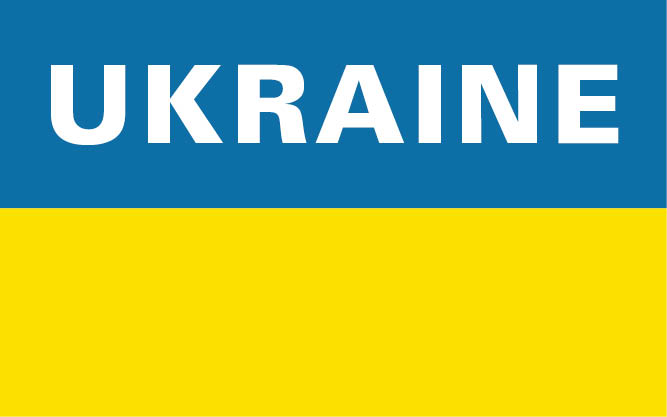
A blog of the Kennan Institute
When Russia invaded Ukraine in February 2022, the international community imposed an array of sanctions. About a thousand international companies joined in by voluntarily withdrawing or suspending their business operations in Russia. Nevertheless, many global companies, operating both inside and outside Russia, have continued business as usual.
Some international businesses and firms state that they cannot suspend their operations in Russia because “their customers need them.” They argue suspending their work would prevent Russian citizens from purchasing basic necessities such as food. Others claim the Russian government has threatened to nationalize their businesses. If this were to occur, these companies say, they would be surrendering their assets to the Russian government. Regardless of their reasoning, the subsidiaries of more than 1,400 EU and G-7 companies were still active in Russia last fall, new research shows.
Cramping Russia’s Style
When the Russian invasion began, Yale University started compiling a list of major corporations operating in Russia. The live document tracks which companies have curtailed business operations in Russia and which still continue to operate there. These industries provide goods and services ranging from consumer staples, energy, and information technology products to industrials, materials, and utilities. Examples of companies that are still active include the American IT firm CloudFlare, the German biotechnology company Bayer, the American oil service company SLB, the German engineering and technology company Bosch, the British banking and financial services company HSBC, the Austrian company Red Bull, and the British logistics company FS Mackenzie. A complete list of these firms and corporations can be found on Yale University’s website.
The ongoing activity of these businesses means that billions of rubles are still helping stimulate the Russian economy and undermining the efficacy of international sanctions. The revenues generated through this trade have allowed Russia to purchase additional weapons and equipment used in the war. For example, the German company Salzgitter AG provides steel products and tubing. According to Yale’s list, Salzgitter is conducting business as usual in Russia. The American company Titan International, which still has a division operating in Russia, produces tires for vehicles. The American corporation GXO Logistics and the French firm ID Logistics, which specialize in logistics and supply chain management, still operate in Russia. Hundreds of other international corporations on Yale’s list provide similar services.
The activities of the aforementioned companies, as well as hundreds of others on Yale’s list, have allowed Russia to earn the money it needs to finance its war. According to a tool developed by the New York Times, Russian exports to several European countries increased dramatically in 2022. For example, Russian exports to Spain increased by 112 percent, Belgian imports of Russian goods and services increased by 130 percent, and Russian exports to the Netherlands increased by 74 percent. The tool estimated that current total trade values for Russia with various European countries amounted to billions of U.S. dollars.
Unsurprisingly, oil and gas exports were Russia’s highest revenue sources in 2022. These exports also helped the Russians “offset revenue lost [by international] sanctions.” Given this trade activity, it is no wonder that Russia has been able to continue paying for its war.
It will surprise no one that many companies on Yale’s list still operating in Russia are Chinese. But, as mentioned above, many others are either European or American. This is where some pressure may be usefully applied.
Currently, some countries have limited their commodity exports from Russia. They have also placed a price cap on goods such as oil and oil products. By pursuing this option, these countries have attempted to constrict Russia’s revenue without undermining European and American markets. Some of the impact is yet to materialize this year. Last year, Russia’s GDP contracted only by 2–4 percent, according to various estimates.
There are stronger measures that political and governmental leadership can take to try to dissuade business owners from continuing operations in Russia. For example, governments could encourage business owners and stakeholders to withdraw their holdings and invest in other corporations or firms that compete with Russian companies, or with international firms operating in Russia. Other strategies could see governments imposing surcharges on a company’s revenue as long as the entity continued operating in Russia.
Similarly, governments around the world could impose sanctions on these businesses to prevent them from continuing operations in Russia, similar to how the United States sanctioned corporations involved in the construction of the Nord Stream 2 pipeline.
Finally, the world should be reminded of the various atrocious acts committed by the Russians in Ukraine. Governments could suggest that companies have a moral and ethical obligation to discontinue their work in Russia. That would be expected to reduce Russia’s spending capabilities and the ability to purchase weapons.
Unfortunately, current sanctions have not ended the war, though the full economic effects of the sanctions have yet to be felt. Imposing stiffer financial penalties on companies that continue to do business in Russia could further narrow the economy by hindering Russia’s ability to conduct business and trade on an international scale. This would limit Russia’s ability to finance its war in Ukraine. It would potentially bring a quicker end to the war as Russia would no longer have the economic means necessary to purchase military hardware and equipment for its war, and it could save thousands of lives.
International corporations have the power to bring a quicker end to Russia’s invasion of Ukraine by terminating their operations in Russia. But they must determine whether they will do so.
The opinions expressed in this article are those solely of the author and do not reflect the views of the Kennan Institute.
Author


Kennan Institute
After more than 50 years as a vital part of the Wilson Center legacy, the Kennan Institute has become an independent think tank. You can find the current website for the Kennan Institute at kennaninstitute.org. Please look for future announcements about partnership activities between the Wilson Center and the Kennan Institute at Wilson Center Press Room. The Wilson Center is proud of its historic connection to the Kennan Institute and looks forward to supporting its activities as an independent center of knowledge. The Kennan Institute is committed to improving American understanding of Russia, Ukraine, Central Asia, the South Caucasus, and the surrounding region through research and exchange. Read more

Explore More in The Russia File
Browse The Russia File
Chechnya as a Model of Modern Russia

Russia’s Indigenous Communities and the War in Ukraine

Gas and Power in a Changing US–Russia Relationship



